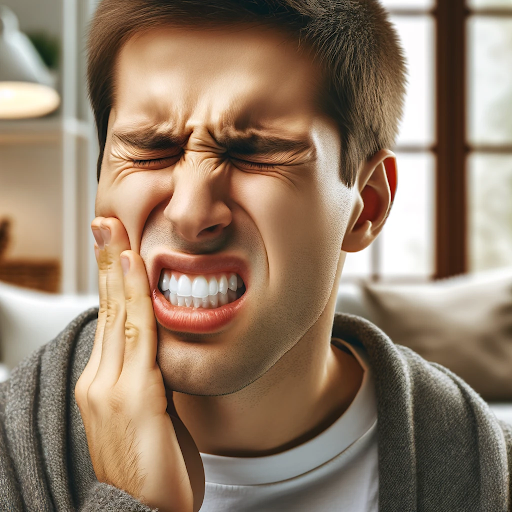Do you feel sensitivity hits you the most during winter? Can cold cause teeth pain? Yes, tooth sensitivity increases significantly during cold weather. As the temperature drops, the dentin gets exposed which leads to discomfort while eating or drinking any cold food and beverages.
How Cold Weather Affects Dental Sensitivity?
Tooth sensitivity is the most common complaint during cold weather. Cold weather can increase tooth pain and sensitivity. You can feel a blast of pain when your teeth are exposed to cold weather.
- Tooth Contraction- Cold weather can increase tooth pain and sensitivity. Due to cold weather, dental sensitivity increases resulting in your teeth contracting and expanding which cracks the tooth enamel.
- Exposed Dentin- When enamel wears down, it reveals the dentin layer which causes sensitivity. However, teeth pain increases a lot in cold weather.
- Sinus Pressure- During cold weather, the problem around the sinus increases which puts pressure on the upper teeth roots causing pain.
- Dry Cold air- Cold weather can cause teeth to hurt because of a dry mouth while inhaling dry cold air.
Common Causes of Increased Tooth Sensitivity in Winter
The most common causes of increased tooth sensitivity in winter are-
- Enamel Contraction- Cold weather increases teeth pain and sensitivity because of the enamel contraction exposing the inner layer of the tooth.
- Weakened Enamel- While contraction, enamel wears down exposing the dentin resulting in increased sensitivity.
- Dry Mouth- Lower humidity and dehydration lead to less saliva production resulting in a dry mouth. Dry mouth then increases sensitivity.
- Sinus- The cases of sinusitis increase during winter creating pressure in the upper roots of teeth.

Signs That Tooth Sensitivity is Worsening in Winter
Your dental health behaves differently during summer and winter. In winter, usually the complaints around sensitivity rise and as a result cold weather and toothache go hand in hand. Here are the signs that tooth sensitivity worsened in winter.
- Experiencing Pain- One of the most common signs is when you experience a sharp pain while breathing cold air.
- Discomfort with Cold Beverages- You may feel sheer discomfort when drinking cold beverages.
- Switching between Hot and Cold- You may experience tooth sensitivity while you switch between hot and cold food and beverages.
- Dry Mouth- Cold dry air can reduce salivary flow causing dry mouth.
- Gum Recession- Cold weather can cause gum pain by worsening existing gum recession exposing more roots.
Managing Tooth Sensitivity During Cold Months
Winter can damage your teeth if proper care is not taken. Cold can cause teeth pain and sensitivity leading to other dental problems. However, you can have tooth sensitivity during winter.
- Sensitivity Toothpaste- Incorporating a good toothpaste for sensitive teeth will help prevent tooth pain and other dental problems
- Gentle Toothbrush- Brush your teeth with a soft-bristled toothbrush to reduce tooth and gum pain.
- Lukewarm Alternatives- Avoid extreme cold or hot temperatures for food and beverages rather go for lukewarm options.
- Nasal Breathing- Do not breathe through your mouth as it may lead to dry mouth.
- Hydration- Keep yourself hydrated throughout the day to avoid dry mouth and to flush out any bacteria.

Conclusion
Dental health slightly goes for a toss during winter because of unwanted increased tooth sensitivity. However, a conscious decision to combat it with regular care can help you prevent tooth sensitivity.
Frequently Asked Questions
Q1. Why do my teeth hurt when I have a cold?
Answer- Teeth feel pain due to cold because of sinus inflammation. The sinus inflammation and congestion put pressure on the upper roots of your teeth and cause pain.
Q2. Does cold make tooth pain go away?
Answer- Yes, putting ice in the inflamed area can make the tooth pain go but during winter this remedy might not work in favor of the cold and can increase tooth sensitivity.
Q3. How do I relieve sinus pressure in my teeth?
Answer- You can relieve sinus pressure by drinking lukewarm water throughout the day, bathing in a hot shower, using nasal spray or some pain reliever.







